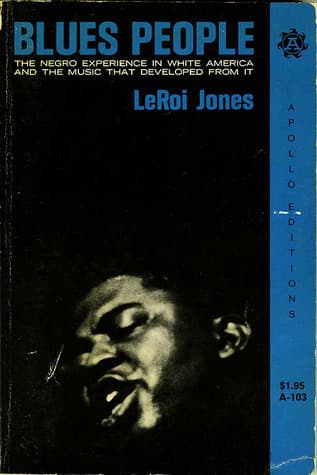
Book Review Summary: Blues People: The Negro Experience In White America And The Music That Developed From It
Introduction
Blues People, written by LeRoi Jones (now known as Amiri Baraka), is a groundbreaking book that delves into the African-American experience in the United States through the lens of music. Published in 1963, it offers a social history of African-American music and its impact on American society. The book explores the development of Negro music and its transformation into American music, tracing it from the slave era to the present day. Jones's work is not only a fresh reinterpretation of Negro music but also a crucial examination of the relationship between African-Americans and whites in America.
About LeRoi Jones
LeRoi Jones, the author of Blues People, was a prominent African-American writer, poet, and playwright. Born as Everett LeRoi Jones in 1934, he adopted the name Amiri Baraka in 1967. Baraka was known for his activism and his contributions to the Black Arts Movement, which aimed to promote black cultural expression and empowerment. He was also involved in various political movements and was known for his controversial views. Blues People reflects Baraka's passion for exploring the African-American experience and his commitment to understanding the cultural roots of music.
Analysis of Views
-
Historical Context: Many readers appreciate the historical context that Blues People provides. The book offers a comprehensive examination of the African-American experience in America, from slavery to the civil rights movement. It delves into the social, economic, and cultural factors that shaped the development of Negro music and its influence on American society.
-
Musical Analysis: Blues People is also praised for its musical analysis. Baraka provides a deep understanding of the evolution of blues and jazz, tracing their origins to African musical traditions. He examines how these musical forms were transformed and adapted by African-American musicians in response to their unique experiences and cultural backgrounds. Readers appreciate the author's ability to connect musical developments with broader historical events and social dynamics.
-
Personal Insights: Some readers feel that Baraka's personal insights are lacking in the book. While he provides a wealth of historical information, some readers feel that he distances himself from the subject matter, making it difficult to connect with his personal passion for music. They wish he had shared more of his own experiences and enthusiasm for blues and jazz, which could have added depth to the narrative.
-
Critique of Mainstream America: Blues People offers a critical perspective on mainstream America's appropriation of African-American music. Baraka highlights how white musicians have often co-opted blues and jazz, commercializing them and stripping them of their original cultural significance. Readers appreciate his critique of cultural assimilation and his emphasis on preserving the authenticity of African-American music.
-
Relevance Today: Many readers find Blues People to be highly relevant today, even though it was published over five decades ago. The book's exploration of African-American music and its relationship with white America resonates with contemporary discussions about race, identity, and cultural appropriation. Readers appreciate its ability to shed light on historical events and their relevance to contemporary issues.
Reasons for Recommendation
-
Historical Significance: Blues People is highly recommended for its historical significance. It offers a comprehensive examination of African-American music and its impact on American society, making it an essential read for anyone interested in American history and culture.
-
Musical Analysis: The book's musical analysis is another reason for its recommendation. Baraka's deep understanding of blues and jazz, coupled with his ability to connect them with broader historical events, makes it a valuable resource for anyone interested in music history.
-
Critique of Mainstream America: Blues People's critique of mainstream America's appropriation of African-American music is also a compelling reason to recommend it. It highlights important issues related to cultural appropriation and authenticity, which are still relevant today.
Reasons for Not Recommendation
-
Lack of Personal Connection: Some readers feel that Baraka's lack of personal connection with the subject matter detracts from the book's overall impact. They wish he had shared more of his own experiences and enthusiasm for blues and jazz, which could have added a personal touch to the narrative.
-
Outdated Views: Blues People was published over five decades ago, and some readers feel that it reflects outdated views on race and culture. While it remains an important historical document, it may not provide a fully contemporary perspective on African-American music and its relationship with white America.
Conclusion
Blues People by LeRoi Jones (now known as Amiri Baraka) is a groundbreaking book that offers a comprehensive examination of African-American music and its impact on American society. It traces the development of Negro music from its roots in slavery to its transformation into American music, highlighting the social, economic, and cultural factors that shaped its evolution. While some readers feel that Baraka's lack of personal connection with the subject matter detracts from the book's impact, others appreciate his historical significance and musical analysis. Blues People remains an essential read for anyone interested in American history, culture, and music.